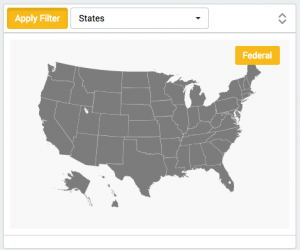California Occupational Safety and Health Board adopted an emergency regulation for California Employers that took effect July 29, 2019.

tryHRIS’s membership includes the Regulatory Compliance Database, which alerts you the moment Federal & State laws, regulations or requirements change, keeping you informed.
Download a PDF of this Law Alert for record.
California August Law Alert: Outdoor Workers and Protection from Wildfire Smoke
This emergency legislation adds protections for outdoor workers exposed to wildfire smoke.
On July 18, 2019, the California Occupational Safety and Health Board adopted an emergency regulation to add protections for outdoor workers exposed to wildfire smoke. Specifically, the regulation requires that employers check the Air Quality Index (AQI) and forecasts, before each shift and periodically thereafter, for workplaces where:
- The current AQI for PM2.5 is 151 or greater, regardless of the AQI for other pollutants; and
- The employer should reasonably anticipate that employees may be exposed to wildfire smoke.
The regulation also contains mandatory employer-provided training and instruction requirements for employees to protect against wildfire smoke, along with employee rights. For example, employers must:
- Allow employees who show signs of injury or illness due to wildfire smoke exposure to seek medical treatment and not punish affected employees for seeking such treatment.
- Have effective provisions made in advance for prompt medical treatment of employees in the event of serious injury or illness caused by wildfire smoke exposure.
The regulations took effect on July 29, 2019 and expire on January 18, 2020.
Read the regulation.
If you have questions regarding these law alerts or other HR related issues, our advisors can help your company navigate every new change, requirement, legislation, law and regulation. Give us a call to see how we can help streamline HR for professionals or office managers.





